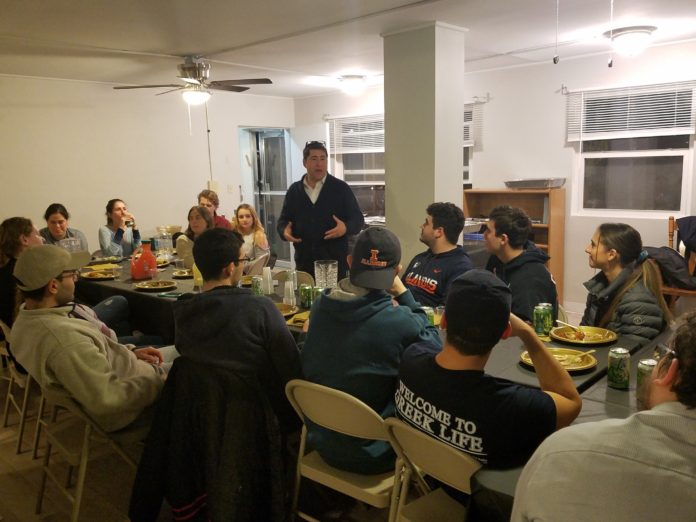Rugby and beer go together. There’s nothing like an ice-cold beer after a hard-fought rugby game. It soothes your aching, wounded body. It makes you relax. After a couple of beers, you feel strong again, almost ready for another game or some other adventure. That’s the problem with alcohol. It clouds your judgment. It makes you think you are a different person than you really are. Maybe that’s part of its appeal. We can escape our lives and be someone else, even it is only for a while. I used to enjoy a beer or two after a game, but I saw too many rugby players (and others) become a little too adventurous for my liking, to allow myself to get into that situation.
We just celebrated Purim. On Purim, we also drink and we also pretend we are someone else. We dress up in costume. But there’s a very important difference. On Purim, we are trying to find out who we really are. We are trying to strip away the external layers which hold us back from getting closer to G-d. That’s why when a true talmid chacham, a Torah scholar, drinks on Purim, what comes out of his mouth is no different than on a regular day. Because who he is internally, is exactly who he is externally.
At JET, we meet and develop relationships with college students and young professionals who are trying to figure out who they really are. That is difficult in today’s confused world, and even more so on a college campus.
When I was a college student, I had a big poster on the wall in my dorm at the University of Cape Town with the words: “Man does not live by bread alone,” emblazoned on it. Underneath was a photo of a beer mug filled with beer.
Little did I know that this was only part of a verse in Devarim/ Deuteronomy (8:2) that continues: “rather by everything that comes from the mouth of G-d, does man live.”
There’s a world of difference between the two.
When I go learn Torah with my sons at Telz, I pass by Northeastern University. Only Foster Avenue separates these two institutions of learning. But there is a world of difference between the two.
Similarly, there is a world of difference between the often-quoted phrase G-d instructs Moshe to say to Pharoah, “Let my people go” and the rest of the verse that concludes with the words “so that they may serve Me.” (Shemot/Exodus 7:26)
Two and a half hours drive south of Telz is the University of Illinois – Urbana/Champaign, home to over 30,000 students, of which about 3,500 are Jewish. And where the new JET Home hosts students for classes, Shabbat meals, and soon for the Pesach seder.
For the past 9 weeks, my wife and I have been making that drive once a week to help our new couple, Rabbi Mordi and Tehiya Rubin, with the Maimonides Leaders Fellowship. Fourteen students are taking this 2 ½ hour a week crash course in Judaism that includes topics such as G-d: Permission to Believe, Free Will, Israel, and the Jewish connection – as well as a delicious kosher dinner and a chance to schmooze with fellow students. Maimonides students recently spent Shabbat in West Rogers Park.
Our goal is to give our students a taste of the beauty of an engaged Jewish life. We want them to know that being Jewish means more than being part of a religion, a race, a country, a culture. It’s about a relationship. It’s a relationship with G-d, with fellow Jews and non-Jews, and a relationship with oneself.
In their application forms, students were asked why they wanted to do the Maimonides program. Here are some of their responses:
Ziv: I want to reconnect with Judaism and incorporate it into my daily life. Coming to college has separated me from the Jewish community and I am greatly missing that.
Zach: I hope to increase my involvement in Jewish life as well as open up the doors to more leadership opportunities and be a connection for other students looking to be more involved as well.
Jamie: I used to love learning about the Torah and different Jewish traditions in Hebrew School, but I have forgotten a lot since then and would love to be more informed about different aspects of Judaism.
At the Maimonides graduation, I read a quote from Rabbi Avraham Jacobowitz, the founder of the Maimonides Program. Rabbi Jacobowitz, or Rabbi J, as he is affectionately known, ran a student program on the University of Michigan campus in Ann Arbor for twenty years. He said:
“There’s a verse in the Prophets predicting the Jewish future after the Jewish people’s long and bitter exile that states: “Behold days are coming and I will send a famine in the land, not a famine for bread and not a thirst for water, but to hear the words of G-d.” How true do these prophetic words ring in our day and age. There are multitudes of Jewish youth that are pondering and wondering what exactly the meaning of life is all about. As their brains seek logical answers and their souls yearn for some spiritual comfort, how unfortunate it is that many of them are completely oblivious to the wealth of brilliant Jewish answers and the wellsprings of spirituality that are so readily available. And how unfortunate it is that many young Jews have been so distanced from their precious legacy that they no longer even have the yearning to reconnect with it. Then there are the few, the proud, such as you, who chose to plunge head-on into searching your roots with the sincere desire to acquire knowledge and learn leadership skills, so they should be able to be the bearers of the torch, ensuring that the flame that was lit so many years ago at Mount Sinai, continues to illuminate their lives, the lives of others, and the lives of future generations. We at Maimonides feel so fortunate that we are able to provide you with this great opportunity to become an effective Jewish leader. Keep up the good work and inspire others to follow in your footsteps.”
We are approaching the holiday of Pesach, the holiday that celebrates our freedom. Not unbridled freedom to do whatever we want to do. Freedom to develop a relationship with G-d, our fellow Jews and ourselves.
Let my people know.
Let my people grow.
Let my people go – become the greatest Jews that they can become.
Chag Kosher V’Samayach







